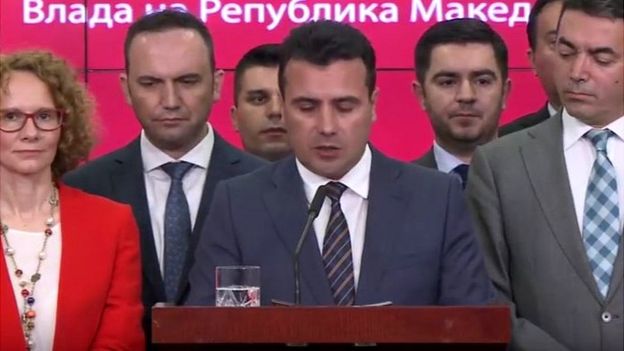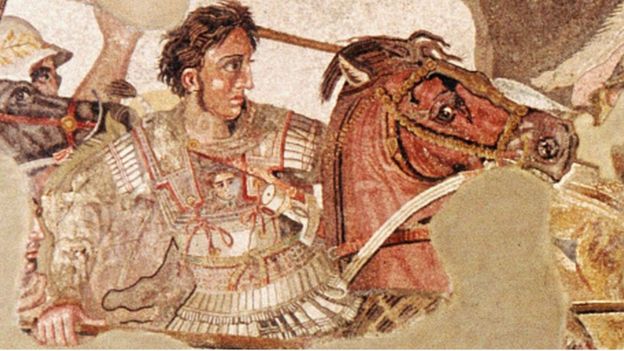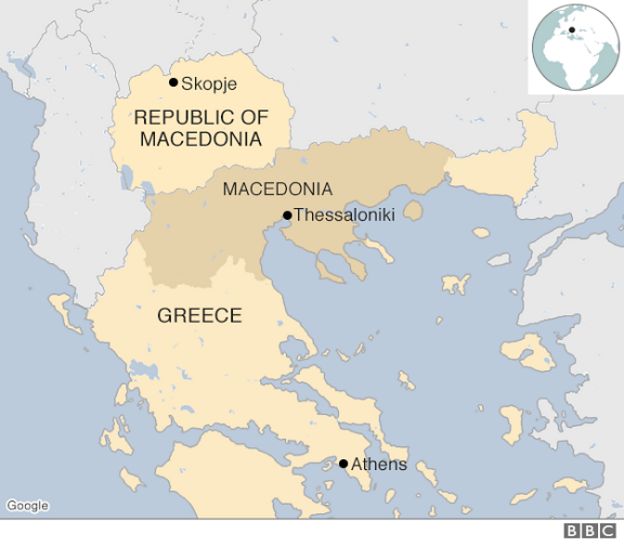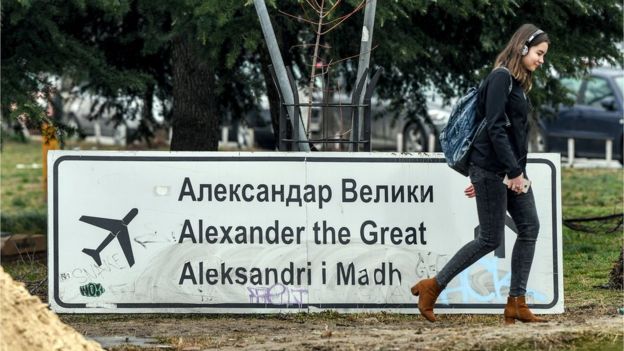
This article is more than
7 year old
After 27 years of talks - and many protests - they have settled on the name Republic of North Macedonia, or Severna Makedonija in Macedonian.
Greece had objected to the name Macedonia, fearing territorial claims on its eponymous northern region.
It had vetoed the neighbour's bid to join Nato and the European Union.
The new name will now need to be approved by the Macedonian people and Greek parliament.
Under the deal, the country known at the United Nations as Former Yugoslav Republic of Macedonia (Fyrom) will be named Severna Makedonija, or Republic of North Macedonia.
Its language will be Macedonian and its people known as Macedonians (citizens of the Republic of North Macedonia).
Significantly, they agreed that the new name would be used both internationally and bilaterally, so that even the 140 or more countries that recognise the name Macedonia will also have to adopt North Macedonia.
They also agreed that the English name could be used as well as the Slavic term.

The two sides had earlier dropped a number of alternatives, including Gorna Makedonija (Upper Macedonia), Nova Makedonija (New Macedonia) and Ilinden Macedonia.
The name Macedonia already belongs to a northern region of Greece that includes the country's second city Thessaloniki. By adopting the same identity in 1991, the new Slavic nation infuriated many Greeks, who suspected their northern neighbour of territorial ambitions.
The new Macedonians did not help matters when they named the main airport in the capital, Skopje, after Ancient Greek hero Alexander the Great, as well as a key motorway running from the Serbian to the Greek border.
During the 4th Century BC, the Macedonia of Alexander and his father Philip II before him ruled all of Greece and much beyond it.
Only partly. Greece argues that Macedonia is an intrinsic part of Hellenic heritage. The ancient capital of Aigai is close to the modern Greek town of Vergina, while Alexander's birthplace is in Pella. As part of the deal, it is made clear that the people of North Macedonia have no relation to ancient Greek civilisation and their language is part of the Slavic family, unrelated to ancient Greek heritage.
But while Alexander remains a powerful symbol, recent territorial disputes over Macedonia are far more serious.

When the Ottomans were driven out of the broad region known as Macedonia during the Balkan Wars of 1912-13, it was split up, mainly between Greece and Serbia, but a small part went to Bulgaria.
In World War Two, Greek and Yugoslav Macedonia were occupied by Bulgaria, an ally of Nazi Germany and Italy. Communists from both Yugoslavia and Bulgaria played a part in the Greek civil war that followed, so memories are still raw.
When Yugoslavia broke up, Greece would only accept the new country as "Former Yugoslav Republic of Macedonia (Fyrom)" at the UN, even though much of the world came to recognise it as Macedonia.

A new mood has emerged between the governments to put an end to the dispute.

Macedonia's government set the stage for a deal earlier this year when it renamed its airport "International airport Skopje" and the Alexander the Great motorway is now simply "Friendship" (Prijatelstvo in Macedonian).
There is also a push for a settlement both from the EU and Nato which some have put down to fears of creeping Russian influence in the Balkans. Greece is the main obstacle to Macedonia joining Nato.
Greek Prime Minister Alexis Tsipras and Macedonia's Zoran Zaev met on the sidelines of an EU summit in Bulgaria last month, prompting reports that a deal was close.
Then they had a long phone-call on Monday and followed it up with another conversation on Tuesday.
Mr Tsipras then gave details of the deal to the Greek president and then Mr Zaev went on live TV in Macedonia, hailing the agreement as historic and adding: "There is no way back."
Mr Tsipras gave a live address a little later, speaking of "a great diplomatic victory but also a great historic opportunity".
Nato Secretary General Jens Stoltenberg praised the two prime ministers for their "willingness" to solve the dispute.
The text is expected to be signed on Saturday on the shores of Lake Prespa, which spans the countries' borders.
Read More (...)